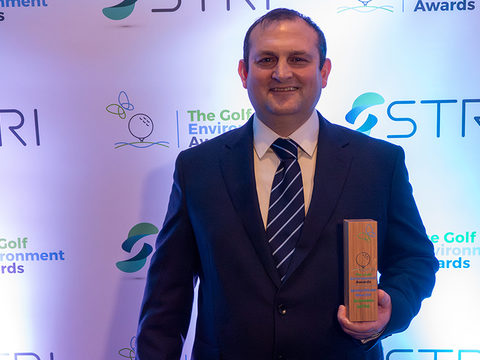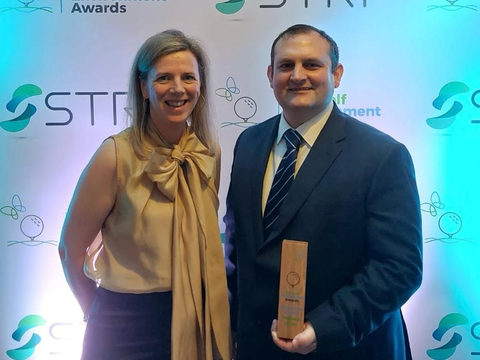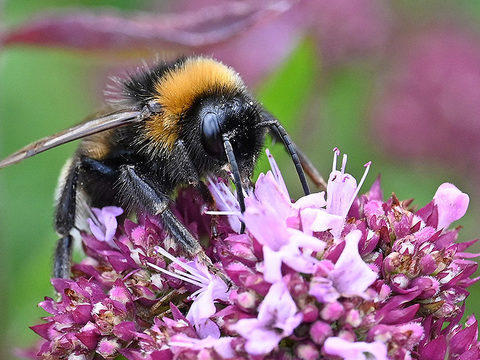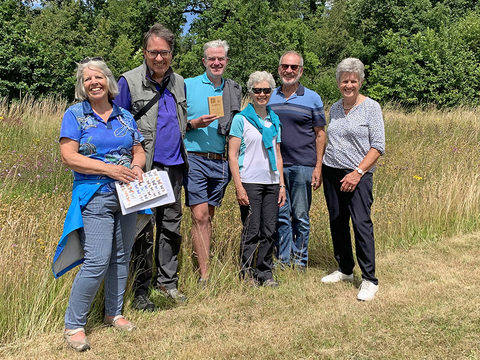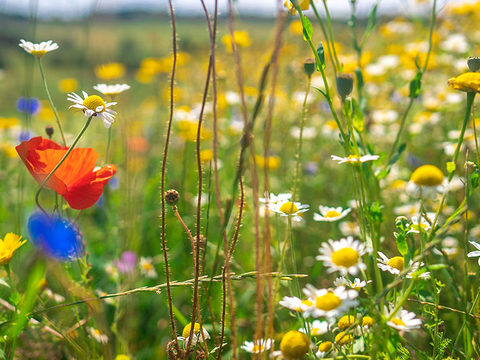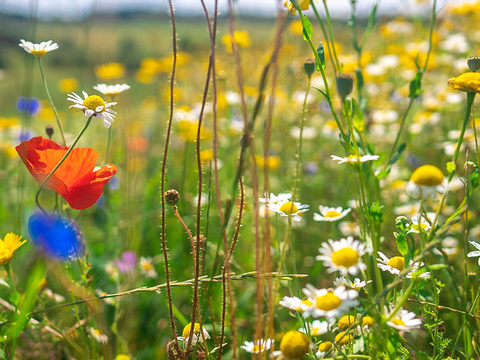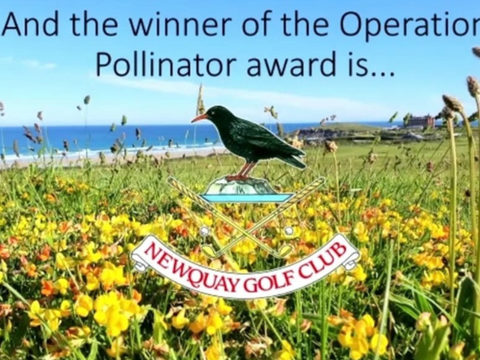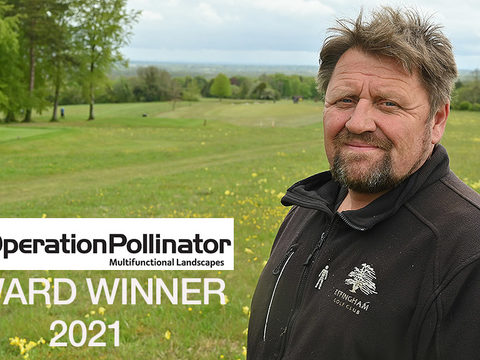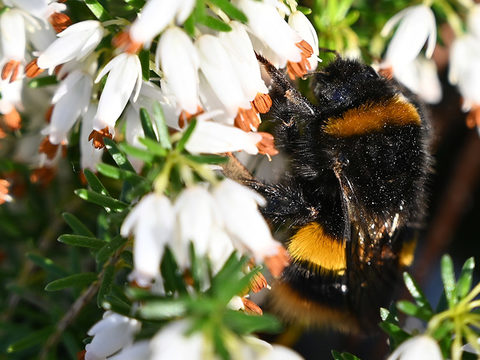OPERATION POLLINATOR PROVIDES FREE ECOLOGICAL HABITAT TRAINING FOR TURF MANAGERS
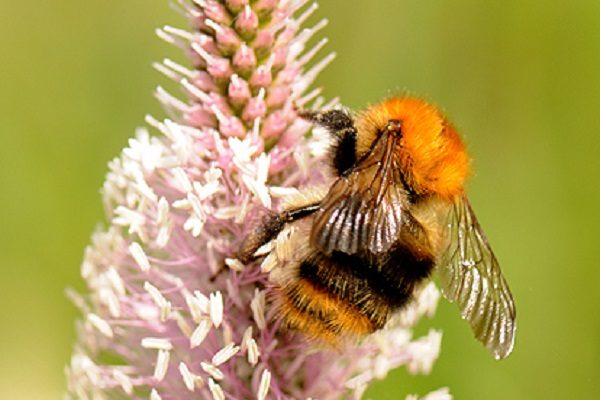
Ecological habitat management offers an exciting opportunity to enhance the attraction of golf courses to both players and natural biodiversity. In 2011 Greenkeepers and course managers had the opportunity for free training and advice on how to get the best results on their course, with a nationwide series of practical Operation Pollinator workshops.
Organised by Syngenta, the training was provided by industry-leading STRI ecologists. The seven workshops across England and Scotland took place on golf courses, enabling the valuable advice to be backed up with practical demonstrations and examples of how to successfully establish and manage wildflower habitats for the benefit of bumblebees and other pollinating insects.
Attendees to the workshops also received 3 BIGGA CPD Credits.
The Operation Pollinator 2011 workshops took place at:
28 July | Marriott Worsley Park, Manchester | |
29 July | Normanton Golf Club, Hatfeild Hall, Wakefield, Yorkshire | |
3 August | Elmwood College, Fife, Scotland | |
8 August | De Vere Belton Woods, Grantham, Lincs | |
9 August | The London Club, Kent - WORKSHOP IS FULL | |
10 August | Beaconsfield Golf Club, Bucks | |
| 15 Sept | Burnham & Berrow Golf Club, Somerset |
Over 140 greenkeepers registered their interest in Operation Pollinator and the free training - at the project's launch during BTME in January 2011.
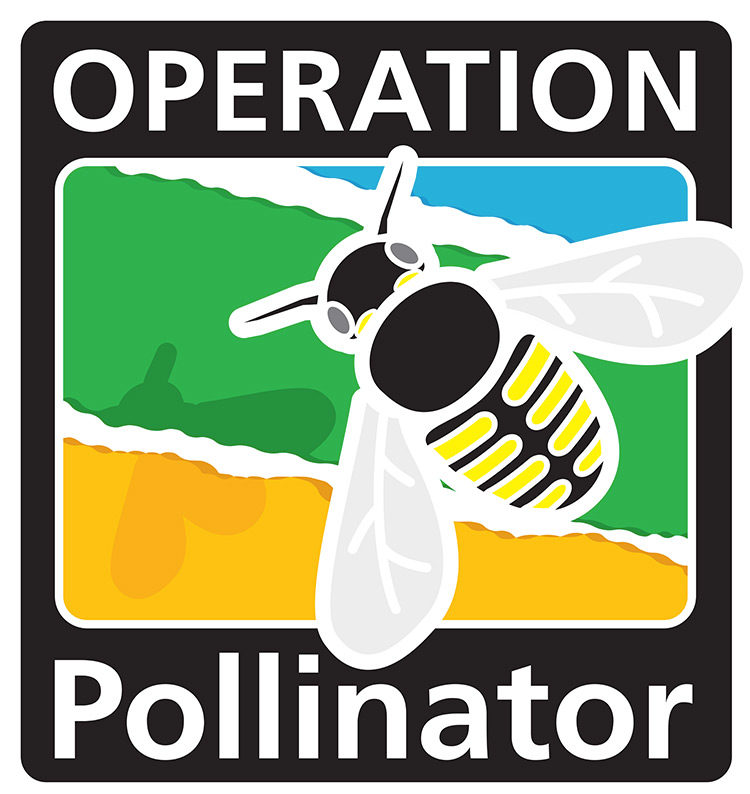
"The level of interest has confirmed the enthusiasm for ecological management among the golf industry," reports Syngenta Turf Portfolio Manager, Rod Burke. "Operation Pollinator can provide the advice and guidance to help manage habitats and out of play rough more cost effectively and to the benefit of the environment."
He believes almost every course can find areas out of play rough that could be further improved to provide valuable habitat, as well as enhancing the visual aspect of the course and the interest of the players. "A small area of well managed Operation Pollinator habitat, rich in pollen and nectar food sources, can make an enormous difference to numbers of bumblebees and natural pollinating insects that are essential for a sustainable ecological balance.
"Helping to resurrect bumblebee populations will help to prove that golf courses can be managed commercially and in harmony with the environment. It gives both the players and managers immense pride in their club," he added. Operation Pollinator is seeking up to 500 golf courses to join the new national scheme over the next three years, with each committed to establishing at least a half a hectare (5000 sq m) of specific habitat in out of play areas.
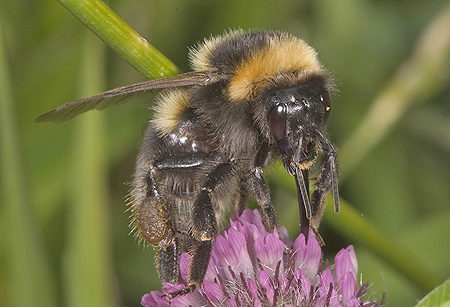
The advice and techniques demonstrated in the Operation Pollinator workshops are based on a series of trials undertaken over recent years on golf courses and at the STRI in Yorkshire. The trials examined a range of ecology management techniques which included the appropriate use of the selective herbicide, Rescue, to reduce competition in aggressive Ryegrass-dominant rough and Primo Maxx turf growth regulator to further reduce competition and aide wildflower establishment.
Mr Burke highlights that, in today's cost conscious times for golf course management, it is important to employ the optimum techniques available to achieve the required composition of the rough. The Operation Pollinator programme has been shown to provide very effective establishment techniques and allows cost savings in the rough improvement programmes.
"The STRI trials and working with leading UK ecologists has developed the knowledge, experience and expertise in the practical management techniques. With this approach, golf courses can deliver a net gain in biodiversity in out of play areas, whilst maintaining the level of inputs required to consistently produce top quality playing surfaces."
Bob Taylor, Head of Ecology and Environment at STRI and leading the Operation Pollinator workshop training, commented: "Improving habitat conditions for bumblebees will represent an important environmental gain with little or no detriment to the playing of the game. It is hoped that this work will generate a wider acceptance and awareness of golf's positive environmental role within the wider landscape."

